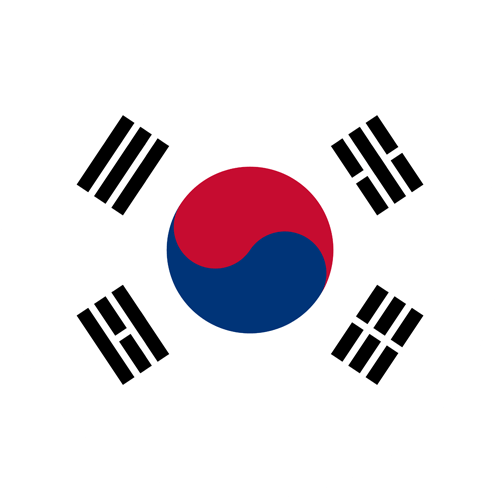
Key Statistics
- Number of Universities: Over 400 universities and colleges
- Annual Tuition Fees: KRW 6,000,000 - 15,000,000 (varies by program and institution)
- International Students: Over 160,000
- Post-Study Work Visa: Graduates can stay and work in South Korea for up to 6 months after completing their degree through the D-10 Job Seeker Visa
Why Study in South Korea with UniGurus
High-Quality Education
South Korea is globally recognized for its high-quality education system, with world-renowned universities offering a strong focus on research and innovation. Students benefit from a modern and academically rigorous environment that is known for producing global leaders in technology and industry.
Competitive Tuition Fees
South Korean universities provide competitive tuition fees for international students, offering excellent value for money while receiving a globally recognized education in one of Asia’s leading economies.
Diverse Range of Programs
Whether you’re interested in engineering, technology, arts, or social sciences, South Korean universities offer a wide variety of programs to match your academic interests and career aspirations.
Rich Cultural Experience
Experience South Korea’s rich cultural heritage, a blend of ancient traditions and modern trends. From K-pop culture to traditional arts, international students will immerse themselves in a dynamic and unique cultural environment.
Technological Advancements
As a global leader in technology and innovation, South Korea provides unparalleled opportunities for internships and careers in sectors like electronics, automotive, IT, and entertainment.
Top Universities in South Korea
- Seoul National University (SNU)
- Korea University
- Yonsei University
- KAIST - Korea Advanced Institute of Science and Technology
- POSTECH - Pohang University of Science and Technology
- Sungkyunkwan University (SKKU)
Popular Courses Offered
South Korean universities provide a wide range of programs across multiple disciplines, including:
- Engineering and Technology: 150 programs
- Business Administration and Economics: 130 programs
- Computer Science and Information Technology: 120 programs
- Social Sciences: 100 programs
- Arts and Humanities: 90 programs
- Natural Sciences: 80 programs
Scholarships and Financial Aid
South Korea offers numerous scholarships and financial aid options to help international students manage tuition fees and living expenses. These include government scholarships and university-specific funding opportunities.
Visa Information
Student Visa Requirements for South Korea from India:
- Admission Letter: Obtain an admission letter from a recognized South Korean educational institution.
- Proof of Funds: Provide evidence of sufficient financial means to cover tuition fees and living expenses.
- Health Insurance: Obtain health insurance for the duration of your stay in South Korea.
- Language Proficiency: Depending on the language of instruction, provide proof of Korean or English language proficiency (e.g., TOPIK, IELTS, TOEFL).
- Application Form: Complete the visa application form for study purposes (usually completed online or at the embassy/consulate).
- Passport: Hold a valid passport with at least six months of validity.
- Photographs: Submit recent passport-sized photographs.
- Academic Transcripts: Provide previous academic transcripts and certificates.
- Visa Issuance Certificate (VIC): Obtain a Visa Issuance Certificate from the South Korean immigration office.
- Accommodation Proof: Show evidence of accommodation arrangements in South Korea.
- Tuition Fee Receipt: Provide proof of tuition fee payment or financial guarantee.
- Visa Fee: Pay the applicable visa fee.
Post-Study Work Visa (D-10 Job Seeker Visa)
After completing your degree, international graduates can apply for a D-10 Job Seeker Visa, allowing them to stay in South Korea for up to 6 months to search for employment or explore business opportunities.
Residency Process
Once you secure employment, you can apply for an E-7 Skilled Worker Visa. After living and working in South Korea for 5 years with a valid work visa, you may become eligible to apply for Permanent Residency (F-2 Visa), which can eventually lead to F-5 Permanent Residency after additional years of residence.
Living Expenses
The cost of living in South Korea varies depending on the city. Average annual living expenses range between KRW 12,000,000 to 24,000,000, covering accommodation, meals, transportation, and leisure activities.
UniGurus Student Support Services
- Academic Support: Receive personalized guidance on academic planning, career counselling, and internship opportunities to help students achieve their academic and career goals.
- Korean Language Support: Access resources and courses to improve Korean language proficiency, essential for integration and academic success.
- On-Campus Services: Assistance with housing, visa procedures, and integration into student life in South Korea.
- Application & Visa Assistance: We provide end-to-end support throughout the application and visa process, ensuring a smooth and hassle-free experience.
With UniGurus, we offer expert guidance and dedicated support to make your study journey in South Korea a success. Let us help you achieve your academic and career goals in one of the world’s most technologically advanced and culturally rich countries!